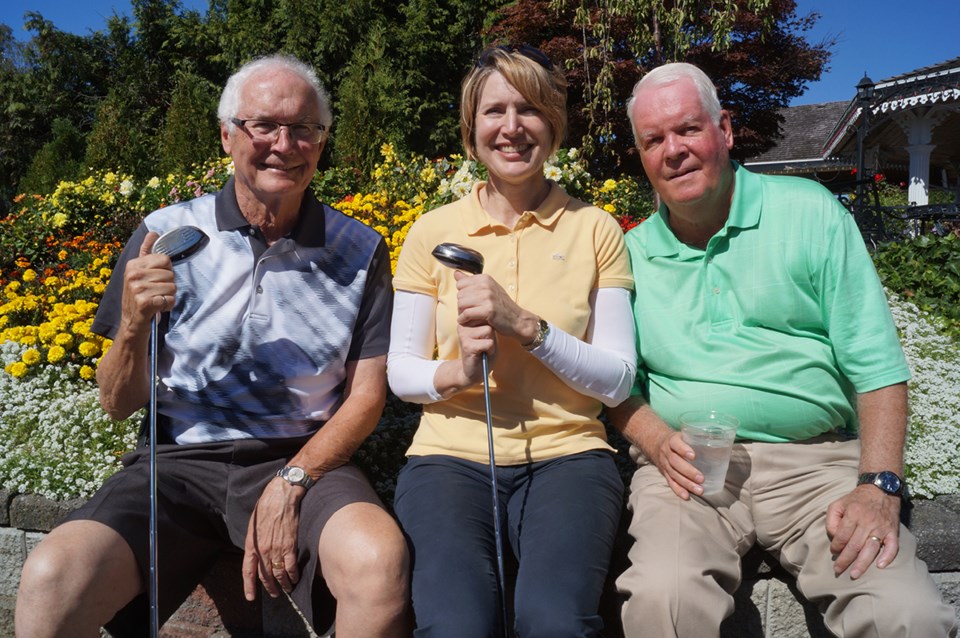There’s nothing quite like walking onto the course for your first charity golf tournament and leading your team to a second-to-last finish.
But that’s exactly what I accomplished as I buried the Senfts and Reynolds, two couples who thought they could depend on me as the fifth team member at the Richmond Senior Men’s Golf Club Charity Tournament last Friday.
I’ve written about how my game has plateaued a little. Recently, I’ve had some terrible struggles with my irons and chipping.
So it was at Country Meadows, a short, executive length course, where I wasn’t much help to my team.
But I digress. The more I ramble, the more I’m burying the lede of this story.
The tournament was hosted to raise money for prostate cancer research.
Queue the drumroll.
These old timers not only kicked my butt in golf, they raised $100,000 for the B.C. Cancer Foundation. And, this year they hit the $1 million mark after 16 annual tournaments.
Benefitting directly from 100 per cent of the proceeds has always been Dr. Marianne Sadar, a BC Cancer Agency scientist, who is in the works of developing a drug to treat late-stage prostate cancer.
Her work has been publicized in medical journals, as well as the media across Canada.
She told me, following our round of golf, her groundbreaking discovery wouldn’t have been possible without the men’s club.
“I was just starting out and had these big ideas about what I thought was the cause of prostate cancer and these guys supported me, and not just for one year,” said Sadar.
Evidently, she searched 30,000 compounds with the help of a $500,000 drug screening machine, paid for by the club’s fundraising efforts, until finally coming across one found in marine sponges that is believed to stop the growth of prostate cancer cells while not affecting surrounding tissue.
When she started looking at prostate cancer treatment she said her methods were “radical,” whereas others in the medical community preferred surgical procedures.
Sadar’s drug targets cancer cells that have spread throughout the body.
The drug is critical as it treats those patients whereby radiation and surgery have not worked.
“There’s really no choice left for them,” she told me.
The drug is in the application process for human trials with the U.S. Federal Drug Administration (Sadar chose to go through the States before Health Canada to expedite the process).
“There’s a lot of excitement for it,” said Sadar.
Prostate cancer will kill about 4,000 men across Canada this year but it will affect 24,000 new men annually.
Healthy lifestyles help stave off the disease.
Charity chair Gary McClure, a prostate cancer survivor, told me all men should be tested for the disease, which usually hits those in the late sixties and beyond.
Not only did I learn a little something about prostate cancer, I learned a bit more about this intriguing, charitable club.
The club began in 1995 and now has 170 members with an average age of 74. It’s a rather exclusive club as it can only accommodate so many people, so it has a wait list of about four years to get on.
And there you have it; A solemn reminder that there are more important things than whacking a little white ball with a funnily shaped stick into a hole way yonder.
Next week, I’m back to wrap up The Graeme Project with my final round of golf at Richmond Country Club.



